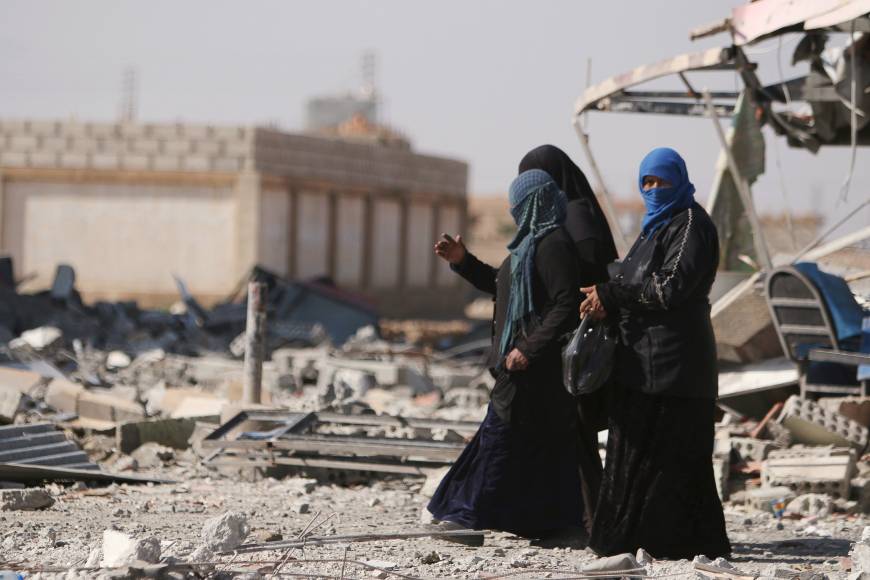Los Angeles- When the Syrian war ends, different movies will compete to tell its stories from different point of views. Yet, reviewing the past will be difficult without considering the battles and rough incidents that took place in Syria over the past six years. Nonetheless, many people don’t like to wait especially if they have something that should be said now before time passes; something that cannot be postponed or an exceptional incident which will be less important later.
Alfuz Tanjour is one of those directors who aims at discussing what is happening today. His documentary “A Memory in Khaki” was considered among of the best Arabic movies for this year, not because it discussed the hard conditions taking over Syria, but because he knew how to use the topic in an artistic way so people always remember it through a movie.
The Syrian cinema saw many other works inspired from the ongoing war like a “the Rain of Homs” for Joud Saeed, who highlighted the Syria war from another point of view.
However, Tanjour’s movie was the best because it shed light on the roots of the Syrian crisis, regardless of the parties fighting today. It shows years of silence, fear and terror, and it dives into the stories, which were behind the eruption of Syria’s society and the start of its revolution. In the movie, three people, two men and a woman, talk about the oppression they faced from the ruling regime.
The director succeeded in merging between the words of his movie stars and the photos of destruction and devastation left by the endless war in Syria.
During an interview with Asharq Al-Awsat, Tanjour revealed the following:
*How did you get the idea of your movie?
It took me three years since the Producer Loay Haffar called me and asked me to work with him on a movie that features the Syria war. From the beginning I knew that working on such topic would be a very hard mission. Many directors worked on this topic before in different ways and the world was watching the Syria crisis on TV channels. Back then, I was living in Beirut and started to choose topics, ideas, main chapters, and possible characters.
However, one day I woke up and started over from the very beginning; I used my memory and the collective memory of Syrians on what we lived for decades in the “Kingdom of Silence” (referring to Syria under Assad’s rule).
*What was the biggest change in your project?
-I travelled with my family to Europe and lived as a refugee; this change made me look at the movie from a different perspective. Therefore, I decided that the movie’s characters should be from my friends, who sought asylum and would openly talk about what they faced since the nineties, when they were exiled.
*How did you choose those friends?
I selected my friends based on their stories and their compatibility with the movie’s idea. I made many random and spontaneous conversations with the characters before shooting to discuss the idea and what I want to say.
*How did you write the scenario? Did you visit the locations? Did you have any idea on the stories of the people who starred your movie?
I studied cinema in its classic and traditional form. I never knew I will make documentaries one day. The main thing I have learned in the university is how to write a good scenario. I usually don’t like surprises, therefore, I prefer to know everything about characters, cameras, and locations, before starting my work. Yet, I didn’t know what will the movies stars say because I am always keen on catching moments of truth and reality.
*Did something urge you to change your movie’s path during shooting?
The most impressive thing was my asylum seeking; it was a very hard experience on the psychological and humanitarian level, which encouraged me to combat weakness through this movie. I wanted to face migration, fear, and maybe nostalgia with my work.
*How important was to you to shed light on the Fascist-like regime that ruled Syria in the past decades?
The regime in Syria has committed myriads of oppressive practices, which definitely pushed me to highlight them but not in a traditional and stereotypical way. I tried to show the regime’s practices by telling long stories that document the country’s status in the past half-decade.
*Some people consider that opposing the Syrian regime means that you support extremist forces that have fought on many Arab territories. What do you think about this?
I have watched many political analysts on TV and I have read people’s views on social media websites, and I think they are all liars. In my movie, I sought to avoid the discussion of political speeches and focused on simple stories we lived as Syrians. In this work, I didn’t try to answer questions or find solutions, but I asked questions on the oppression we witnessed and the reasons that forced us to live under it.
Finally, the writer insisted that despite all the changes and interferences that took place over the past years, the Syrian uprising that kicked off in 2011 was a decent revolution of a people that sought liberty, sovereignty, justice and equality. As a director, he said that artists should have a humanitarian position that highlights people’s suffering and struggle.
